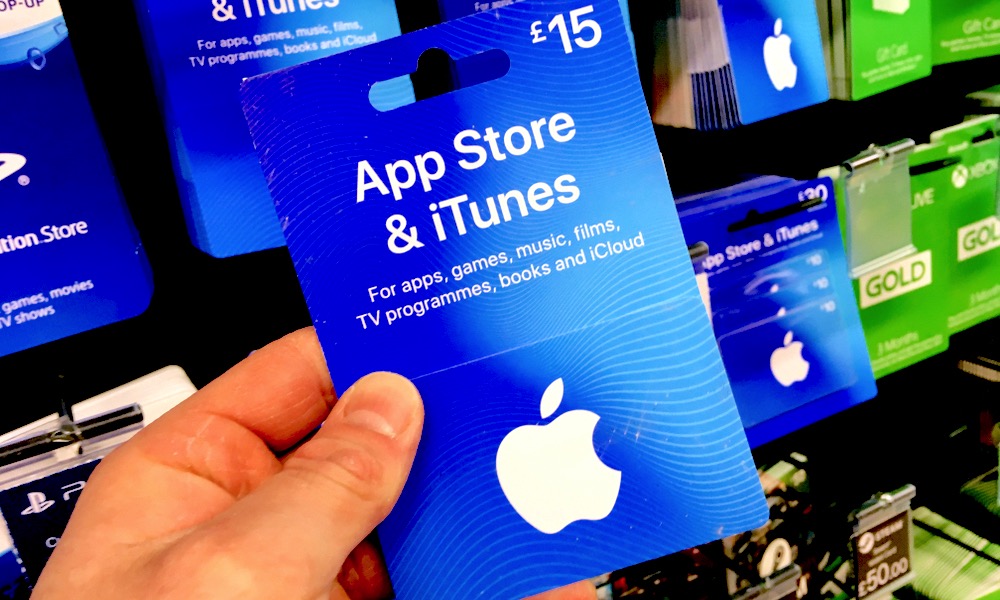FAQ | Does Apple Profit from iTunes Gift Card Scams? (This Lawsuit Says Yes)
 Credit: David Cardinez / Shutterstock
Credit: David Cardinez / Shutterstock
Toggle Dark Mode
Two years ago, a group of victims who had fallen prey to scams involving iTunes Gift Cards launched a class-action lawsuit against Apple, accusing the company of perpetuating these scams and profiting from criminal activity.
The original lawsuit filed on July 17, 2020, asserted that Apple had violated California’s Unfair Competition Law, Consumers Legal Remedies Act, and False Advertising Law. Since many of the victims were elderly, the plaintiffs also cited violations of the state’s elder abuse laws.
Specifically, among other things, the complaint alleged that Apple was “receiving, retaining, withholding, or concealing stolen property” and “aiding and abetting intentional torts.”
The complaint’s core is that Apple knew or should have known about these iTunes gift card scams, including when and how stolen gift cards were being used.
Since Apple did nothing to block the use of these stolen gift cards or return the money to those who had been defrauded by scammers, this made the company a willing accomplice in the fraudulent schemes, lawyers for the plaintiff argued.
- Typically, criminals defraud unsuspecting victims out of iTunes Gift Cards by claiming to be an agent of the U.S. Internal Revenue Service (IRS) or some other official agency attempting to collect a debt.
- The scammers use high-pressure tactics to convince the victim that payment is required immediately to avoid severe consequences and convince the person that they can use an iTunes Gift Card as payment in place of cash.
- Targets of these scams are told to purchase iTunes Gift Cards, either in person or online, and then supply the gift card codes to the perpetrator over the phone or via email or instant messaging.
Here’s how Apple describes the scam in a support article:
“Regardless of the reason for payment, the scam follows a certain formula: The victim receives a call instilling panic and urgency to make a payment by purchasing Apple Gift Cards, App Store & iTunes Gift Cards, or Apple Store Gift Cards from the nearest retailer (convenience store, electronics retailer, etc.). After the cards have been purchased, the victim is asked to pay by sharing the code(s) on the back of the card with the caller over the phone.”
The problem has become serious enough that Apple has issued repeated warnings telling people what should seem obvious to most: that iTunes Gift Cards are not an acceptable form of payment to the IRS, and you should never provide your gift card number over the phone to somebody you don’t know.
Never provide the numbers on the back of a Gift Card to someone you do not know. Once those numbers are provided to the scammers, the funds on the card will likely be spent before you are able to contact Apple or law enforcement. Apple
While Apple naturally filed a motion to dismiss the case, the courts have ruled that the company will have to face at least some of the claims alleged in the lawsuit.
According to Courthouse News, U.S. District Judge Edward Davila dismissed most of the claims in the original lawsuit, arguing that there’s insufficient evidence that Apple actually aided in the scams.
However, Judge Davila did acknowledge that Apple may benefit from the scams and that it can do more to help victims, upholding those particular claims:
“Here, Plaintiffs have pled direct knowledge: Martin, Marinbach, Qiu, and Hagene directly informed Apple that they had been scammed and their money had been stolen. Plaintiffs have also pled indirect suspicious circumstances: that Apple stands to benefit from proliferation of the scam, that Apple is fully capable of determining which accounts redeemed the stolen gift card funds and preventing payout of those funds, and that Apple nevertheless informed Martin, Marinbach, Qiu, and Hagene that there was nothing it could do for them despite those Plaintiffs’ prompt notification of the theft.”
One of the critical points plaintiffs made in the original lawsuit is that Apple typically holds funds paid for an app or media item for up to six weeks before making payment to the developer or rights holder. This provides ample time for Apple to reverse the transaction and issue a refund to the victim of a scam.
Further, since Apple takes a 15-30% cut from App Store purchases, plaintiffs have argued that the company should, at the very least, be able to refund that portion of illicit purchases to the victims. Further, because Apple takes this commission from all purchases, plaintiffs argue that Apple has little motivation to prevent gift card scams as it materially benefits from them.
Judge Davila’s ruling is merely a green light for the case to proceed, overriding Apple’s blanket motion to dismiss. The plaintiffs will still need to prove in court that Apple benefited from iTunes gift card scams and didn’t exercise enough of a duty of care to prevent customers from falling victim to such scams.
The case will now proceed to the discovery phase, so an actual hearing is likely still several months away.







